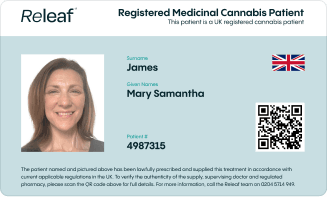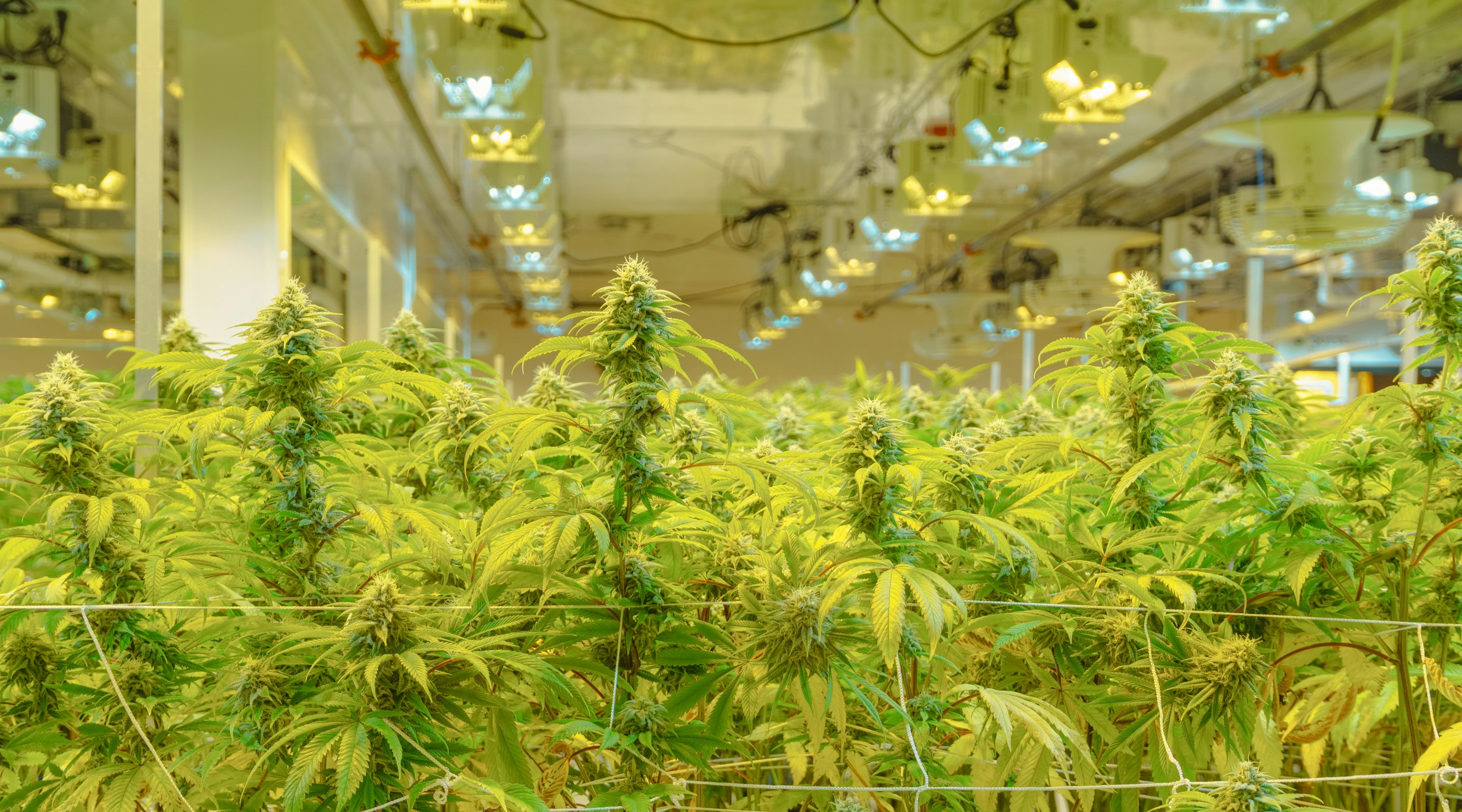Hemp. Often confused with its intoxicating kin, or what we mostly refer to as cannabis (which is still a class B controlled substance), hemp is actually just one part of the cannabis sativa L. genus. For plants to be classed as hemp here in the UK, they must produce less than 0.2% of the psychoactive cannabinoid, known as THC (tetrahydrocannabinol).
While hemp is legally grown in the UK for commercial purposes, the required licences are expensive and the process is complicated. The accompanying rules and regs are convoluted, which severely hinders UK hemp farmers from keeping up with international counterparts, and legislators have shown little interest thus far in simplifying the process.
Considering the historical role of hemp in the UK, this does seem punitive. Hemp has such low THC content that consuming it does not cause any psychotropic effect, and with the rise of CBD as a wellness aid, addressing all the regulatory hurdles should be a priority.
This guide explores the legal framework, licensing requirements, and guidelines surrounding hemp cultivation here in the UK. Whether you're a farmer entering the industry or curious about hemp's benefits, this article provides valuable insights and a deeper understanding of its history, current status, and future prospects.
Hemp in British history: a legal and cultural overview
The history of hemp cultivation is both far-reaching and fascinating history here in the UK. Way before the prohibition on cannabis that was introduced in the 1920s, hemp was a staple crop that was grown for its strong fibre and nutritious seeds.
Tracing hemp's historical roots
Historical records dating back to 373 BC show the earliest mention of hemp was when the Celtic princess Cambri Formosa was credited with recording the plant's weaving potential.
More than a millennium later, in 1533, King Henry VIII passed a for the time, revolutionary law, making hemp cultivation in England compulsory.
This law forced every farmer to grow at least a quarter of an acre of hemp for every 60 acres of land under their control. Farmers were even encouraged to pay their taxes in hemp, as the crop was just so valuable. Hemp grows faster than cotton, and the fibres produced are of higher quality. This, coupled with its versatility, but most importantly to the king – its use as ropes and sails for his Royal Navy ships and its adaptability to a variety of climates, made hemp an indispensable resource for England.
However, hemp fell out of favour during the first part of the 20th century. Industrial hemp uses were on the decline, and it was associated with the THC-dense varieties of cannabis, with both sides of the Cannabis sativa L. genus being grouped together and heavily stigmatised.
And that brings us up to the present day. Despite its long and successful history in the UK, the fact that hemp doesn't produce the same psychoactive effects as cannabis and that the social, legal, and political landscape has changed dramatically in regard to medical cannabis – the legality of not only hemp itself but also the legal framework that controls hemp cultivation is anything but straightforward.
Navigating the legal landscape of hemp in the UK
Today, the entire Cannabis sativa L. genus is listed as a controlled drug in Class B of The Misuse of Drugs Act 1971. However, in line with The Industrial Hemp Regulations 2001, with a special licence issued from the home office, the plant can be grown, but only certain parts can be legally harvested.
This is where the confusion comes in, and it's also the main reason why UK hemp farmers are lagging behind their European counterparts. UK hemp regulations are convoluted, to say the least.
Deciphering UK's hemp laws
UK farmers must destroy the leaves and the buds (flowers) as soon as they are separated from the harvested plants. The only parts that can be legally collected are the seeds and fibres.
Why, you ask?
The flowers and the leaves are where the majority of the cannabinoids, such as CBD and THC, are found in abundance. And even though farmers are only legally allowed to grow hemp cultivars that contain less than 0.2% THC, they still have to destroy the parts of the plants that contain it.
Now, from the outside looking in, this may seem like a logical decision. But, considering the many therapeutic benefits of cannabinoids like CBD, this requirement is a backwards step in terms of legislation that has been moving forward in leaps and bounds throughout Europe. That's not to mention the fact that products containing CBD are totally legal here in the UK.
In a nutshell, Hemp's legal status is more complicated than most of the rest of Europe.
A step-by-step guide to UK hemp cultivation licensing
So, even with the heavy restrictions in place, if you still want to cultivate hemp on a commercial level, you will need to get hold of a hemp cultivation licence through the UK Home Office, fill in the MD-29 form on their Drug Licensing website, and also let your local police station know that you’re growing it.
The UK hemp cultivation licence application process explained
Before filling out the application, you need to:
- Ensure you are applying within the application window as outlined on the Home Office website
- Download the ‘iCasework web app’ and sign up
- Apply for your enhanced DBS check using the links available on the Home Office website, ensuring the Home Office is noted as the relevant body
On the form, you’ll complete the following fields:
- Your full name and contact information
- Where you intend to plant the hemp – the name of the location or a grid reference
- How much you will plant, usually in hectares
- A map marking your intended growing area
- The type of seed you will plant and its THC concentration
The application fee is £580, and you may also have an inspection officer come round to look at the plot to check if all the information you provided is correct. If this is the case, expect to be out of pocket for another £1,371.
The licence is valid for 3 years, but again there is a caveat to this. Say you are granted a growing licence in September 2023; your '3 year' licence will actually end on the 31st of December 2025, meaning you will lose a whole season. You must also complete an ‘annual licence review statement’ at the start of each growing season. The renewal fee currently stands at £326.
Is it legal to consume hemp?
Legal hemp products include hemp seeds, hemp oil and other edible hemp products, provided they contain less than 0.2% THC.
CBD products, which are mostly produced from hemp cultivars overseas, are also legal and applied for a variety of therapeutic and wellness purposes. THC-dominant cannabis strains and products containing more than 0.2% THC are illegal unless they come in medical form with a doctor’s prescription.
Exploring the versatile benefits of hemp in various industries
In the last couple of years, hemp has been making a real comeback in a range of industrial sectors. It has become a highly sought-after ingredient found not only in health foods, oils, and natural remedies but also in skincare products, textiles, and is making a splash in the construction industry.
One of the key reasons for its popularity is the widely recognised nutritional benefits of hemp seeds. These tiny powerhouses are packed with essential nutrients, including omega fatty acids, vitamin E, phosphorus, potassium, sodium, magnesium, sulphur, calcium, iron, and zinc. Incorporating hemp seeds into your diet can contribute to overall well-being and provide a natural boost of goodness for your body.
Hemps environmental benefits
- Hemp offers significant environmental benefits by acting as a CO2 absorber, helping to offset fossil fuel emissions.
- Additionally, it has the capacity to restore the health of contaminated soil, enhance nutrient levels, and promote the growth of neighbouring plants, even in flower beds.
- Moreover, hemp cultivation supports biodiversity.
- Growing hemp without the need for pesticides or herbicides makes it a more sustainable and eco-friendly option for your backyard.
- On a larger scale, commercial hemp farming can contribute to local industries and manufacturing.
- With its increasing popularity and demand, hemp farming can be a profitable venture for farmers, ultimately boosting the economy.
The future of the hemp industry in the UK: trends and predictions
So, what is the future of UK hemp industry?
Onward and upward. At least, that's what we hope. The economic potential of hemp, alongside its environmental and therapeutic benefits, is a promising sign of growth and development for the industry.
This incredible plant is not only versatile and eco-friendly, but it also has a range of medical applications. With the passing of the UK's Psychoactive Substances Act in 2016, hemp and CBD products have been given the legal go-ahead, leading to increased demand and more opportunities for UK farmers.
Anticipated hemp industry trends
By all predictions, there is nothing stopping hemp from becoming a multi-billion-pound industry in the next few years, apart from the current restrictions on flower and leaf harvesting. With specialised products ranging from industrial hemp to medical grade CBD, we hope to see a hemp cultivation expansion in the UK in the coming years.
But, for this to become a reality, the regulations need to be simplified, and the bureaucracy surrounding hemp cultivation must be stripped back in order for UK farmers to truly take advantage of this golden opportunity.
Let's hope that the UK Home Office remains open to the idea of a thriving UK hemp industry and removes the burdensome restrictions on growing and harvesting. This could lead to an exciting future for both farmers, patients, and consumers alike.
FAQs about the UK hemp industry
What types of hemp products are legal in the UK?
Hemp seeds, hemp oil, and other edible hemp products containing less than 0.2% THC are legal. CBD products derived from hemp for therapeutic and wellness purposes are also legal.
What are the main benefits of utilizing hemp in various industries?
Hemp has been found to have significant environmental benefits, acting as a CO2 absorber and restoring the health of contaminated soil. It is also highly nutritious, providing essential nutrients for overall well-being. Additionally, hemp cultivation can contribute to local industries and the economy.
What restrictions currently exist for UK hemp farmers?
At present, flower and leaf harvesting is restricted in the UK. UK farmers must also navigate through complex regulations and bureaucracy surrounding hemp cultivation.
What is the potential future of the UK hemp industry?
With the increasing demand for hemp products and the potential for a multi-billion-pound industry, the UK hemp industry has a bright future. However, simplification of regulations and removal of restrictions on cultivation are necessary for this potential to be fully realized.
Concluding insights on hemp cultivation and legality in the UK
The UK may have had a rocky relationship with hemp in the past, but things are beginning to look up. Although the restrictions that are currently in place hinder the industry's progress, hemp is here, and unlike the prohibition days that started a century or so ago, it is here to stay. Hemp is simply too versatile and too important in too many industries to be ignored any longer. With the right support, and by advancing hemp legislation, it could become a major player in the UK economy.
If you are considering adding hemp-based products to your current health or wellness routine, Releaf is here to help. Don't let the stigma surrounding medical hemp and cannabis prevent you from getting a suitable treatment. Releaf provides tailored monthly packages, specialist consultations for medical cannabis, and a unique medical cannabis card for protection, all based on your medical cannabis prescription.
We also have an extensive blog and a huge education section, so feel free to head over if you want to learn more.





